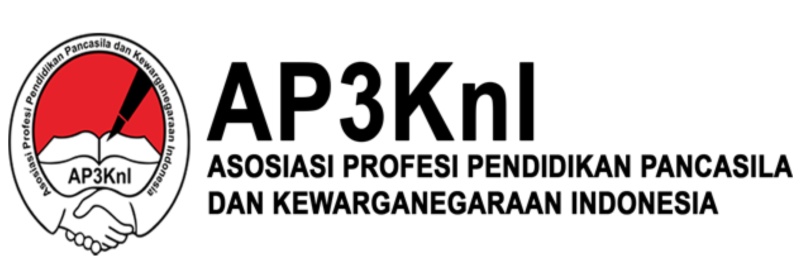IMPLEMENTING GAMIFICATION WITH THE PEACEGEN APPLICATION TO ENHANCE STUDENT ENGAGEMENT AND MOTIVATION IN CLASS VII A AT SMPN 1 LABUAPI, WEST LOMBOK: AN ACTION RESEARCH STUDY
Abstract
Abstract
"This classroom action research (CAR) aims to implement gamification strategy using PeaceGen application to enhance the students' learning activity and motivation in 7th grade class A at SMPN 1 Labuapi, West Lombok. The study was conducted for two cycles, involving 30 students as research subjects. The data on students' learning activity and motivation were collected through classroom observation, field notes, and interviews. The results indicate that the implementation of gamification strategy using PeaceGen application can improve the students' learning activity and motivation. In the second cycle, the students' learning activity and motivation significantly increased compared to the previous cycle. Therefore, gamification strategy with PeaceGen application can be an effective alternative method to enhance the students' learning activity and motivation in 7th grade class A at SMPN 1 Labuapi, West Lombok."
Keywords: gamification, PeaceGen, student engagement, student motivation, action research
Abstrak
Penelitian tindakan kelas (PTK) ini bertujuan untuk menerapkan strategi gamifikasi dengan menggunakan aplikasi PeaceGen untuk meningkatkan keaktifan dan motivasi belajar siswa di kelas VII A SMPN 1 Labuapi, Lombok Barat. Penelitian ini dilakukan selama dua siklus dengan melibatkan 30 siswa sebagai subjek penelitian. Data keaktifan dan motivasi belajar siswa dikumpulkan menggunakan observasi kelas, catatan lapangan, dan wawancara. Hasil penelitian menunjukkan bahwa penerapan strategi gamifikasi menggunakan aplikasi PeaceGen dapat meningkatkan keaktifan dan motivasi belajar siswa. Pada siklus kedua, keaktifan dan motivasi belajar siswa meningkat secara signifikan dibandingkan dengan siklus sebelumnya. Oleh karena itu, strategi gamifikasi dengan aplikasi PeaceGen dapat menjadi alternatif metode yang efektif untuk meningkatkan keaktifan dan motivasi belajar siswa di kelas VII A SMPN 1 Labuapi, Lombok Barat.
Kata Kunci gamification, PeaceGen, student engagement, student motivation, action research
Full Text:
PDFReferences
DAFTAR PUSTAKA Chou, Y. (2015). Actionable gamification: Beyond points, badges, and leaderboards. Octalysis Media. Connolly, T. M., Boyle, E. A., MacArthur, E., Hainey, T., & Boyle, J. M. (2012). A systematic literature review of empirical evidence on computer games and serious games. Computers & Education, 59(2), 661-686. Deterding, S., Dixon, D., Khaled, R., & Nacke, L. (2011). From game design elements to gamefulness: Defining gamification. Proceedings of the 15th International Academic MindTrek Conference: Envisioning Future Media Environments, 9-15. Hamari, J., Koivisto, J., & Sarsa, H. (2014). Does gamification work? A literature review of empirical studies on gamification. Proceedings of the 47th Hawaii International Conference on System Sciences, 3025-3034. Hamari, J., & Sarsa, H. (2014). Does gamification work? A literature review of empirical studies on gamification. In 2014 47th Hawaii International Conference on System Sciences (pp. 3025-3034). IEEE. Hamari, J., Koivisto, J., & Sarsa, H. (2014). Does gamification work? A literature review of empirical studies on gamification. In 47th Hawaii International Conference on System Sciences (pp. 3025-3034). IEEE. Harackiewicz, J. M., Barron, K. E., & Elliot, A. J. (1998). Rethinking achievement goals: When are they adaptive for college students and why? Educational Psychologist, 33(1), 1-21. Hwang, G. J., Fu, X., & Liang, J. C. (2020). Investigating the effects of a digital game-based learning platform on students' learning performance and motivation. Journal of Educational Technology & Society, 23(1), 33-45. Kapp, K. M. (2012). The gamification of learning and instruction: Game-based methods and strategies for training and education. John Wiley & Sons. Kim, K. J., Liu, S., & Bonk, C. J. (2005). Online MBA students' perceptions of online learning: Benefits, challenges, and suggestions. The Internet and Higher Education, 8(4), 335-344. Kitsantas, A., & Zimmerman, B. J. (2009). College students' homework and academic achievement: The mediating role of self-regulatory beliefs. Metacognition and Learning, 4(6), 531-552. Landers, R. N., & Landers, A. K. (2014). An empirical test of the theory of gamified learning: The effect of leaderboards on time-on-task and academic performance. Simulation & Gaming, 45(6), 769-785. Lee, J. J., & Hammer, J. (2011). Gamification in education: What, how, why bother? Academic Exchange Quarterly, 15(2), 1-5. Mekler, E. D., Brühlmann, F., Tuch, A. N., & Opwis, K. (2017). Towards understanding the effects of individual gamification elements on intrinsic motivation and performance. Computers in Human Behavior, 71, 525-534. Pekrun, R., Elliot, A. J., & Maier, M. A. (2009). Achievement goals and discrete achievement emotions: A theoretical model and prospective test. Journal of Educational Psychology, 101(4), 114-122. Yılmaz, R. M., Kılıç Çakmak, E., & Yılmaz, M. B. (2020). Investigating the effect of technology-based learning on students' problem-solving skills and critical thinking skills. Journal of Education and Training Studies, 8(10), 173-182.
Refbacks
- There are currently no refbacks.







